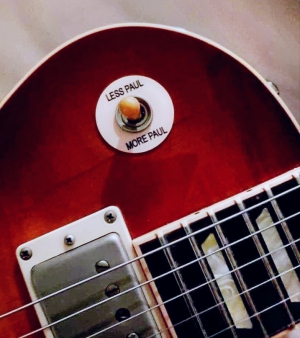How Neil Sedaka Helped Create The Super-Group ABBA
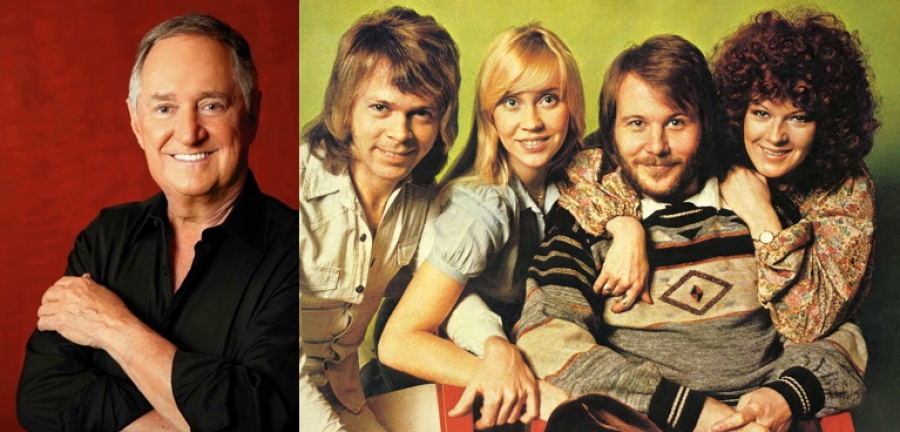 Yes, you read that correctly.
Yes, you read that correctly.
Neil Sedaka, of “Breaking Up Is Hard to Do” fame, actually played a part in the formation of one of the most popular acts ever in pop music, the Swedish juggernaut known as ABBA.
How? Read on.
The formation of ABBA actually was a long, convoluted process that really came about almost by accident. Benny Andersson was leader of a top Swedish rock group, the Hep Stars. Bjӧrn Ulvaeus was the leader of a popular folk ensemble known as the Hootenanny Singers. The fact that both groups chose English language names betrayed something else. Both Benny and Bjӧrn dreamed of stardom outside their native country.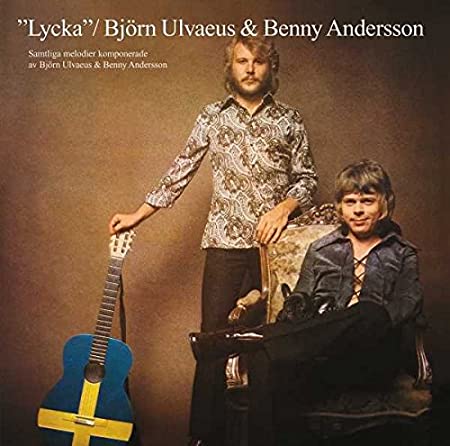 By the late 60s, they had formed a songwriting/producing partnership at the Swedish record label that had signed both of their bands – Polar Music. After penning some minor hits for other Swedish pop stars, it was inevitable the duo should start releasing their own songs. Their first single as Bjӧrn & Benny, “Hej Gamle Man!” (“Hey, Old Man!”) went to the top of the Swedish charts. That and the album it came from increased the boys’ popularity in their native country. Even more importantly, the lads had asked their girlfriends, Agnetha Fältskog and Anni-Frid Lyngstad, to sing back-up vocals on the album. Now, Agnetha was already an established singer/songwriter in her own right, having chart success since she was in her mid-teens. Frida was signed to EMI records but hadn’t yet had a breakout recording.
By the late 60s, they had formed a songwriting/producing partnership at the Swedish record label that had signed both of their bands – Polar Music. After penning some minor hits for other Swedish pop stars, it was inevitable the duo should start releasing their own songs. Their first single as Bjӧrn & Benny, “Hej Gamle Man!” (“Hey, Old Man!”) went to the top of the Swedish charts. That and the album it came from increased the boys’ popularity in their native country. Even more importantly, the lads had asked their girlfriends, Agnetha Fältskog and Anni-Frid Lyngstad, to sing back-up vocals on the album. Now, Agnetha was already an established singer/songwriter in her own right, having chart success since she was in her mid-teens. Frida was signed to EMI records but hadn’t yet had a breakout recording.
With the success of that first album and single, a follow-up was inevitable. It was here that the boys made what proved to be two very smart decisions. One, they decided to give the girls a more prominent role on the follow-up with the boys and girls trading alternate verses and all four joining together on the chorus. Two, they decided they would record in English moving forward, opening up their recordings to worldwide airplay.
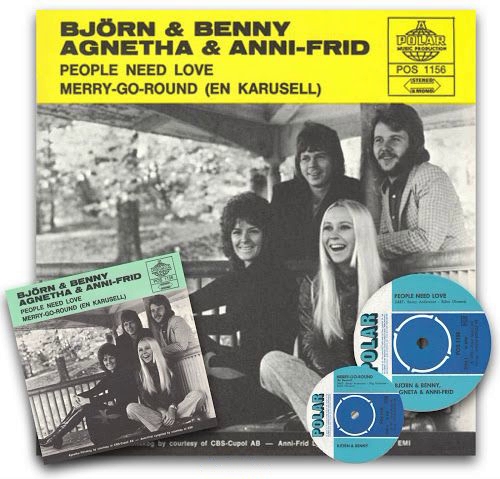
Permission from the ladies’ respective record labels was secured and the follow-up, “People Need Love,” was released under the name “Bjӧrn & Benny, Agnetha & Anni-Frid.” Just as they hoped, “People Need Love” became a hit not just in Sweden, but also in several European countries, South Africa and a few countries in South America.
This success brought the group an invitation to compose, produce and enter a song in the Eurovision song contest. At this point, the boys made another brilliant decision. They would make the women’s voices the lead and they would become the back-up singers. Truth be told, Bjӧrn and Benny had pleasant, but very bland singing voices while Agnetha and Anni-Frid had voices like angels.
Now, here is where Neil Sedaka comes in. (You didn’t think we’d forgotten him?)
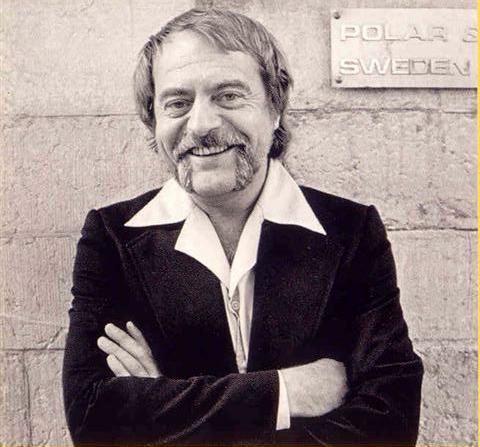 The head of Polar Music and the group’s eventual manager, Stig Anderson wanted to make sure their Eurovision song would have great English lyrics. So, he contacted Neil Sedaka in the States. Sedaka agreed. Bjӧrn & Benny sent him the melody they had created. In addition. Stig had come up with a title he really liked. So, Sedaka and his composing partner, Phil Cody, quickly dashed off a suitable set of lyrics and the song, “Ring, Ring,” was ready for the recording studio.
The head of Polar Music and the group’s eventual manager, Stig Anderson wanted to make sure their Eurovision song would have great English lyrics. So, he contacted Neil Sedaka in the States. Sedaka agreed. Bjӧrn & Benny sent him the melody they had created. In addition. Stig had come up with a title he really liked. So, Sedaka and his composing partner, Phil Cody, quickly dashed off a suitable set of lyrics and the song, “Ring, Ring,” was ready for the recording studio.
Both Bjӧrn and Benny were huge fans of the early Phil Spector “Wall of Sound” recordings. They wanted their own wall of sound, but had a real problem. Spector employed multiple musicians during his sessions – as many as 5 guitar players, 2 or 3 drummers, 2 bass players, multiple keyboards, etc.
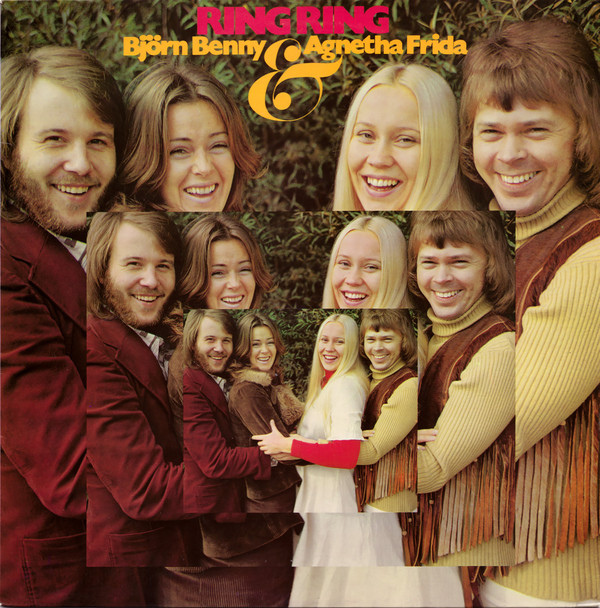 The boys simply didn’t have the budget for that kind of production. But their engineer, Michael Tretow came up with an innovative solution that became the final ingredient in the distinctive sound we’ve come to know. Tretow had the group re-record their backing vocals and instrumental tracks multiple times. He then employed an additional trick that he kept secret even from the group itself. When they recorded subsequent takes of the backing tracks, Tretow added Scotch tape to the recorder’s pinch roller. That changed the speed of the subsequent takes ever so slightly. When combined with the original tracks, all of a sudden, the instruments sounded massive. They had done it – created their own wall of sound on the cheap. “Ring, Ring” was ready to storm the contest!
The boys simply didn’t have the budget for that kind of production. But their engineer, Michael Tretow came up with an innovative solution that became the final ingredient in the distinctive sound we’ve come to know. Tretow had the group re-record their backing vocals and instrumental tracks multiple times. He then employed an additional trick that he kept secret even from the group itself. When they recorded subsequent takes of the backing tracks, Tretow added Scotch tape to the recorder’s pinch roller. That changed the speed of the subsequent takes ever so slightly. When combined with the original tracks, all of a sudden, the instruments sounded massive. They had done it – created their own wall of sound on the cheap. “Ring, Ring” was ready to storm the contest!
Unfortunately, the song did not win the Eurovision contest. It finished 8th in the final voting. Undaunted, Polar released the song, again under the name “Bjӧrn & Benny, Agnetha & Frida” and it became an even bigger hit across Europe than “People Need Love.”
It was at this point that the quartet admitted what was obvious – they needed to ditch their separate careers and focus all their energy on making the foursome successful. Stig Anderson recommended the group ditch the unwieldly name and instead, go with the nickname he had already given them privately, using the first letter of each member’s first name.
Finally, ABBA was born!
They immediately started work on the song they intended to enter in the next year’s Eurovision contest, one that would build on the sound they had established with “Ring, Ring,” but would also rock a little harder and finally break ABBA in the UK and America. And this time, they didn’t need Sedaka’s help. Bjӧrn, Benny & Stig started working on the song that became “Waterloo.”
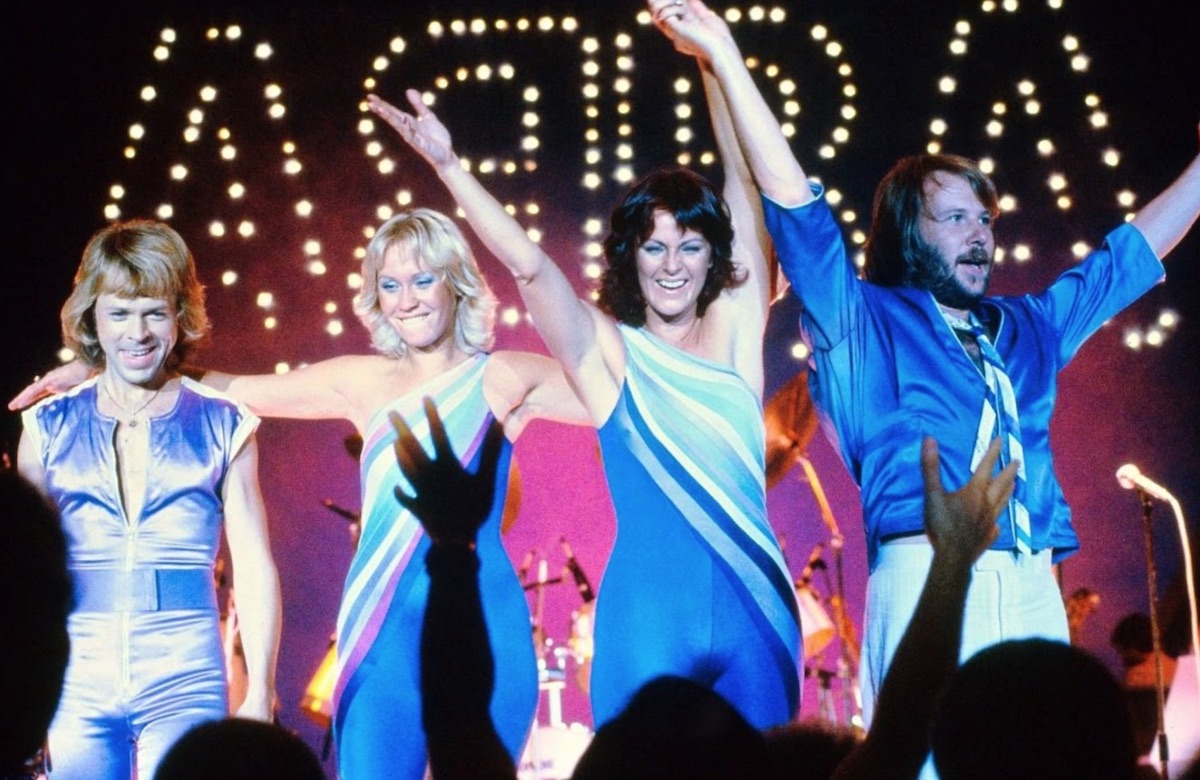
Vitamin D to the Rescue
New studies have shown that taking 800 IUs of Vitamin D daily can lower the risk of falls and fractures for people in the Baby Boomers’ age bracket. Exactly why is still unknown but the study showed those who took Vitamin D daily were 72% less likely to fall!
Sad News
Unfortunately, due to the COVID-19 pandemic, Dick Pillar and His Polka Posse have had to cancel this year's Polkabration. Refunds available where you bought your tickets.
Happy 4th of July
Have a happy 4th of July and don't give anybody the business!
Public Service Health Message
In this time of hieghtened concern for public health, We post this handy guide in the public interest,
How The Kinks Got Their First Hit
The Kinks needed a hit. Their first two records had both stiffed. Leader Ray Davies knew they weren’t going to get that many chances. So, for their third attempt he tried something completely different.
The song the band and their producer, American Shel Talmy, picked was one Davies had written 2 years before. He had been smitten by a girl he saw dancing in club where the band was performing. After their set, Ray went looking for her but came up empty. He put his frustration in the lyrics of the song.
Finally having recorded the song, the band was not happy with the way it sounded. Ray and his brother Dave Davies thought it sounded too slow and too polished. They wanted a rawer sound, one that came closer to the way the band sounded live playing the poorly lit, overheated rock clubs around London. So, the record label let the band try again – but only if the group paid for the recording time themselves. Borrowing the money from their managers, the Kinks returned to the studios. They used amplifiers they had cut themselves with razor blades to create a more distorted, fuzzy sound. They picked up the tempo. In a final touch, producer Talmy had the band record two layers of backing vocals to make the finished product sound denser.
The result of all that effort was their first #1 in the UK and first top 10 hit in the U.S. – “You Really Got Me.”
Why Use Credit Cards, Not Debit Cards
Because credit cards give you more protection should your card number be stolen.
Most credit card companies have a limit on how much your account may be charged in the event of false charges. In fact, many companies won’t hold you responsible for any charges should your account number get hacked. That’s not true with your debit card. Thieves could also use that to hack into your bank account online and make off with whatever you many have in your savings or money market accounts if those are linked to your checking account.
To be on the safe side, always pay with a credit card, then reimburse that card as soon as possible.
To Vape or Not to Vape
Vaping – the practice of smoking using an “electronic cigarette” has been touted as a safe alternative smoking, but is it really?
If you are a current tobacco smoker, the answer is – it’s safer than regular smoking, but it’s not safe.
Studies have confirmed that those who vape are 30% more likely to development chronic lung disease than those who don’t smoke at all. There are also preliminary reports that vaping may present other health problems.
So, the healthiest response would be – not to vape!
Story Behind the Song: "Come Softly to Me"
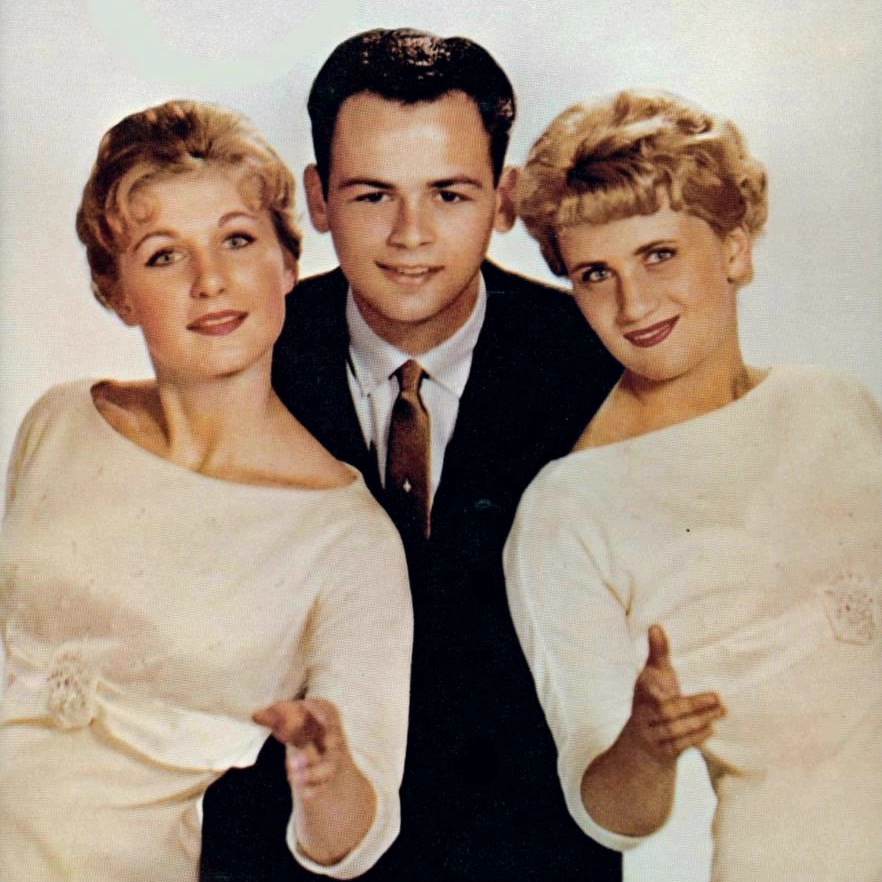 “Come Softly to Me” is a rock & roll classic. It’s been covered by a multitude of artists including Fleetwood Mac’s Bob Welch & Christine McVie.
“Come Softly to Me” is a rock & roll classic. It’s been covered by a multitude of artists including Fleetwood Mac’s Bob Welch & Christine McVie.
The original was recorded in the fall of 1958 by the three kids that wrote it: Barbara Ellis, Gretchen Christopher and Gary Troxel – better known as the Fleetwoods.
The group got its start at Olympia High School where all three were students. Ellis and Christopher began as a duo, but felt something was missing. So, they asked their friend, Gary Troxel, to join them. At one of their first rehearsals, the girls sang Gary a song the two of them had composed. They called it “Come Softly.” Troxel then improvised a part for himself, softly singing “Um-doobee-doo down-down down-doo-down…” Troxel’s improvisation gave the song what it need – a hook! He also improvised some lyrics to go between the girls harmonizing on “Come softly, darling, etc.”
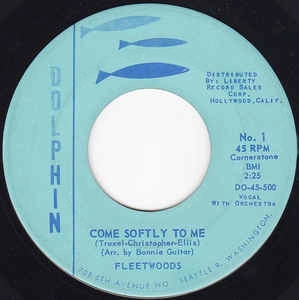 What happened next sounds so corny you wouldn’t believe it if you saw it in a movie. The trio recorded an acapella version of the song in Gretchen's living room and sent the tape to the tiny independent Dolphin Records label. Bob Reisdorf, head of the label, was so impressed, he not only signed the group to a recording contract, he went ahead and used the home recording as the basis for the single that was finally released. Reisdorf added an acoustic guitar, bass and mild percussion to the already existing vocals. What sounds like a tambourine in the song is actually Gary Troxel shaking his car keys. Reisdorf also added the words “to Me” to the title, feeling “Come Softly” was a little too suggestive for 1958 (although that exact phrase appears nowhere in the song). Again, just like in the movies, their virtually homemade record went all the way to #1
What happened next sounds so corny you wouldn’t believe it if you saw it in a movie. The trio recorded an acapella version of the song in Gretchen's living room and sent the tape to the tiny independent Dolphin Records label. Bob Reisdorf, head of the label, was so impressed, he not only signed the group to a recording contract, he went ahead and used the home recording as the basis for the single that was finally released. Reisdorf added an acoustic guitar, bass and mild percussion to the already existing vocals. What sounds like a tambourine in the song is actually Gary Troxel shaking his car keys. Reisdorf also added the words “to Me” to the title, feeling “Come Softly” was a little too suggestive for 1958 (although that exact phrase appears nowhere in the song). Again, just like in the movies, their virtually homemade record went all the way to #1
The group went on to place 11 more songs in the top 40, including another #1 (“Mr. Blue”). Unfortunately, Troxel, who had joined the Naval Reserve in 1956, was called up to active duty just as the group’s career was peaking. That meant less time in the recording studio and another young, unknown singer named Vic Dana occasionally taking Troxel’s place when the group performed live.
By the time Troxel was out of the Navy and ready to resume his singing career, the British Invasion had changed the musical taste of American teenagers overnight.
The group hung on for a few more years, but eventually disbanded. When the rock & roll revival kicked in during the 1970s, the Fleetwoods did not reform. Instead, both Christopher and Troxel formed separate groups. Although legal rights to the name The Fleetwoods belong to Christopher, it was Troxel’s thin, whispery voice that gave the group its identifiable sound. It was Troxel and two new ladies that PBS called on to appear as the Fleetwoods when they were making their “Doo-Wop Revival” fund-raising shows. All three original members of the group are still with us today.
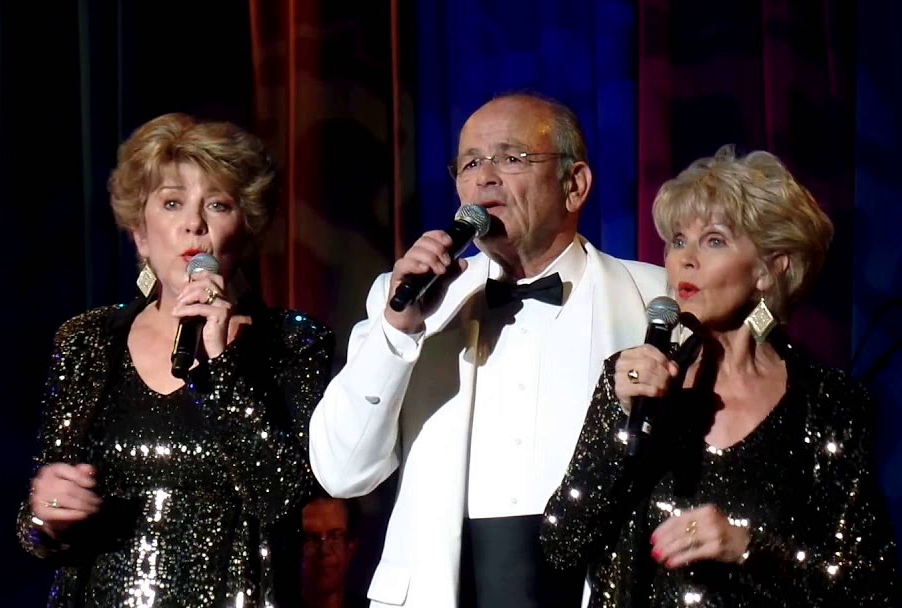
Pop Up Player
Latest Posts–Movies & TV
-
Alfred Hitchcock Presents
While often lumped together with “The Twilight Zone” and “Boris Karloff’s Thriller,” “Alfred Hitchcock Presents” is the true original, debuting 4 years before TZ and 5 before “Thriller.” Alfred Hitchcock’s show was also different than…
-
The TV That Time Forgot: The Donna Reed Show
For 8 seasons, The Donna Reed Show provided Baby Boomers with a sort of Mother Knows Best amid a ton of family sitcoms focused on the father. Cast as Donna Stone, Donna presided over a…
-
Friday Night at the Drive-In: Lover Come Back (1961)
Sequels & remakes? Nothing new here – Hollywood’s been recycling stuff ever since the first “magic lantern shows.” Want proof? Let’s settle in to watch one of those terribly puritanical “sex comedies” from the Sixties…
-
The TV That Time Forgot: The Millionaire
Boy! Could we use a show like this in real life! From 1955 to 1960, for 5 seasons an eccentric millionaire would give away $1 million to somebody he never even met. We were allowed…
-
Summer at the Triple-R
One of the biggest, most popular TV shows from the Baby Boomers' childhood was The Mickey Mouse Club. Airing after school Monday through Friday on ABC, it was “must-see TV” for our generation. While the…
-
The Bombshell and the Virgin
The two biggest box office attractions of the late 1950s and early 1960s had many similarities and two huge differences. Both were blondes. Both were very attractive. Both changed their names when they got into…


